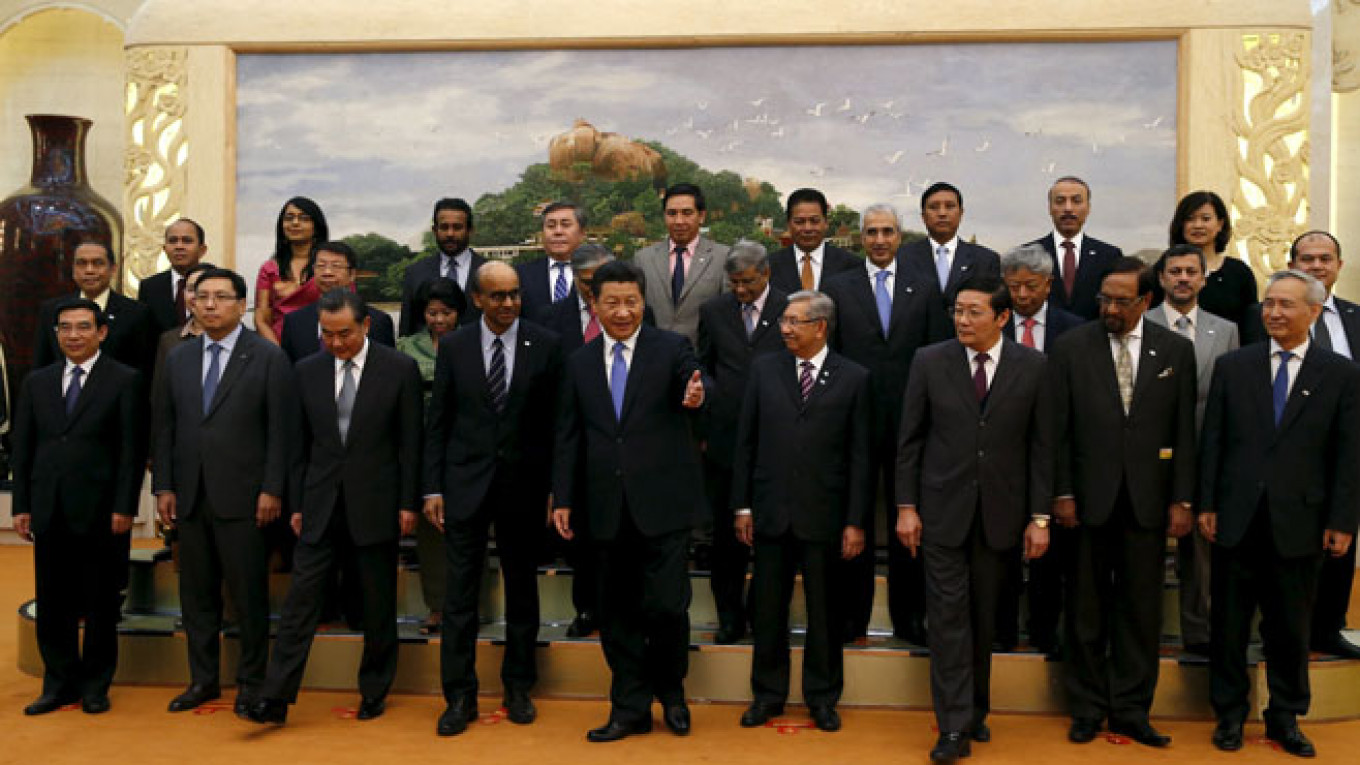Last week in his speech at the Boao Forum in China, Russia's First Deputy Prime Minister Igor Shuvalov announced Moscow's decision to join the Asian Infrastructure Investment Bank. "By the decision of our president, Russia will formally join the AIIB in July of this year," he said, addressing the crowd at a China-created replica of Davos.
Shuvalov's announcement came as no surprise considering global enthusiasm about the AIIB, a Beijing-sponsored alternative to institutions like the World Bank and the Asia Development Bank. The list of the AIIB's future members includes Britain, Germany and South Korea — U.S. allies that decided to seek membership despite strong American opposition.
Given the colossal amount of money needed to upgrade Russia's poor infrastructure and shrinking economy, the country was naturally positioned to seek membership at the AIIB back in 2014 when the project was first unveiled. So the real question is: Why did it take Russia so long to make a decision?
Beijing had asked Moscow to join the AIIB in early 2014, and made repeated calls throughout the year as the October deadline for signing the memorandum approached.
However, to their surprise, the Chinese got a negative reply. The request was communicated through diplomatic channels and the Russian bureaucratic mechanism passed it over to the Finance Ministry, which manages Moscow's engagement with international financial bodies.
September 2014 was a nervous time for Russia's Finance Minister Anton Siluanov. The oil price was falling and U.S. and EU sectorial sanctions had limited access to international debt markets.
The idea to pay real money in order to join the AIIB was rejected up front. "We have no money to participate in Chinese geopolitical projects" was the internal explanation. The Russian Foreign Ministry forwarded a polite rejection to Chinese colleagues.
The incident went unnoticed by the Kremlin. There was simply no mechanism in the Russian bureaucratic machine that could bring the issue to attention at a more senior level wherein the AIIB concept could receive proper treatment.
It wasn't until Shuvalov, Putin's favorite troubleshooter for economic problems, started to prepare for his trip to Boao that the issue came up again. Several factors coincided to lead to a review in policy.
First, Shuvalov's desk was filled with memos from different Russian embassies describing Western countries' struggle to join the AIIB and explaining the benefits that Europeans see in the institution.
Second, there was a recently formed group on the Asia-Pacific under the Shuvalov-led economic stability commission. The group's chairman, Deputy Economy Minister Stanislav Voskresensky invited some high-level businesspeople to discuss the AIIB and channeled their views to the government.
Last but not least, the AIIB controversy was widely reported in the Financial Times, The Wall Street Journal and all major international outlets. Being one of the most international members of Putin's government, Shuvalov may have come across the AIIB issue in the newspapers.
At the end, the AIIB question finally reached the appropriate high level, and after very quick deliberations the issue was presented to President Vladimir Putin, who made the decision to join the AIIB.
The story exposes the weakness of the Russian decision-making process. The bureaucracy's flaws, namely a tendency toward ad hoc decisions, neglect for independent expertise, lack of long-term planning and strategic oversight all complicate the existence of the Russian government and, as a result, that of Russian businesses and citizens.
Alexander Gabuev is a senior associate and chair of the Russia in the Asia-Pacific Program at the Moscow Carnegie Center. This is an abridged version of an article on Carnegie's Eurasia Outlook blog.
A Message from The Moscow Times:
Dear readers,
We are facing unprecedented challenges. Russia's Prosecutor General's Office has designated The Moscow Times as an "undesirable" organization, criminalizing our work and putting our staff at risk of prosecution. This follows our earlier unjust labeling as a "foreign agent."
These actions are direct attempts to silence independent journalism in Russia. The authorities claim our work "discredits the decisions of the Russian leadership." We see things differently: we strive to provide accurate, unbiased reporting on Russia.
We, the journalists of The Moscow Times, refuse to be silenced. But to continue our work, we need your help.
Your support, no matter how small, makes a world of difference. If you can, please support us monthly starting from just $2. It's quick to set up, and every contribution makes a significant impact.
By supporting The Moscow Times, you're defending open, independent journalism in the face of repression. Thank you for standing with us.
Remind me later.








